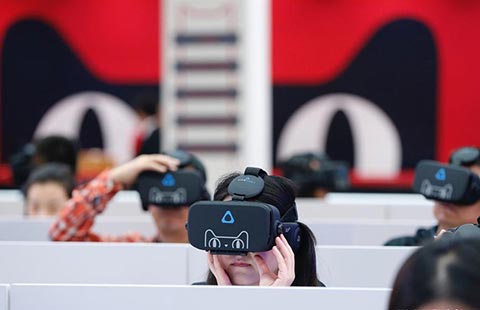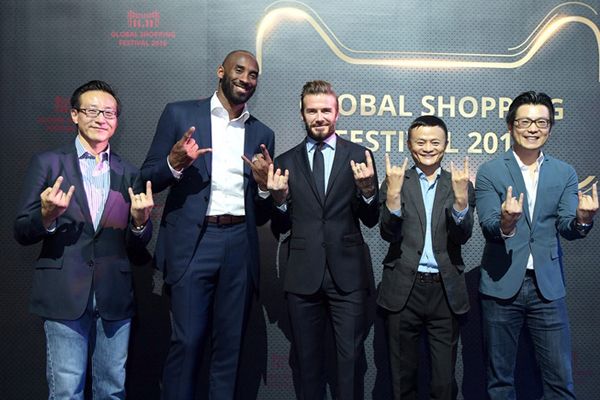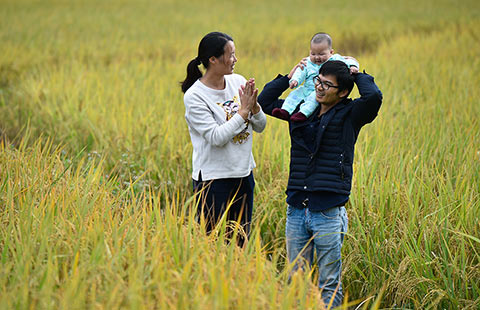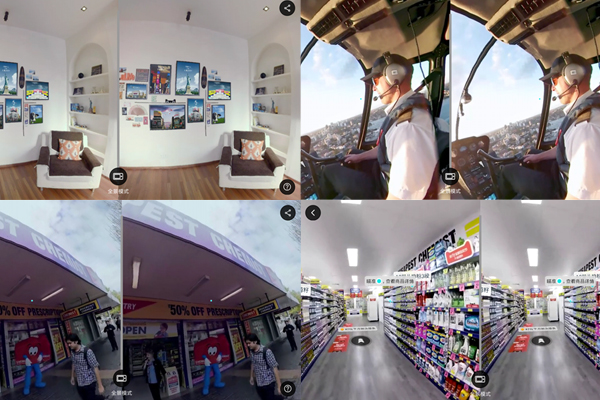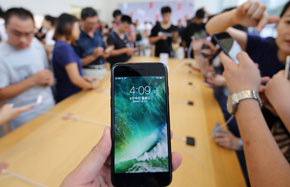Singles Day spree sets record again
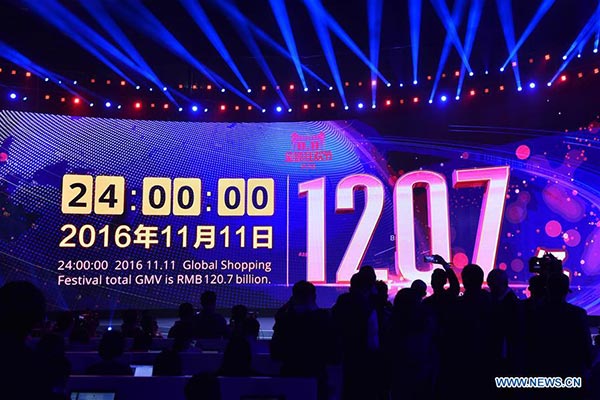 |
|
Photo taken on Nov 12, 2016 shows a giant screen displaying total gross merchandise volume (GMV) of Alibaba's online marketplace Tmall for Singles' Day shopping spree in Shenzhen, South China's Guangdong province. By 0 o'clock on Saturday, the total GMV of Tmall during Singles' Day has exceeded 120.7 billion yuan (about $17.78 billion).[Photo/Xinhua] |
The star-studded, four-hour variety show on Thursday night ended at midnight, launching the huge event on Friday that brought hundreds of millions of shoppers to e-commerce sites and merchants.
For the first time, e-commerce giant Alibaba Group Holding offered a 3-D shopping experience for shoppers making purchases with virtual reality goggles.
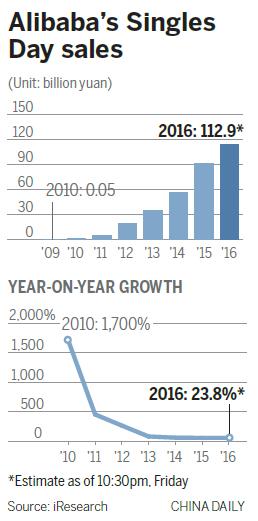 Rival JD.com Inc enlisted robots to distribute the massive online orders that began pouring in as of midnight on Thursday and dispatched drones to speed up deliveries.
Rival JD.com Inc enlisted robots to distribute the massive online orders that began pouring in as of midnight on Thursday and dispatched drones to speed up deliveries.
Additionally, US retailer Target and tech giant Apple Inc participated for the first time.
Alibaba, which initiated the Singles Day shopping festival on November 11, 2009, reported its estimated sales of the day at 112.9 billion yuan ($16.6 billion) by 10:30 pm on Friday.
The sales far exceeded the 91.2 billion yuan in transactions it generated last year, as consumers shrugged off any concerns and went into a "hand chopping" mode-a phrase that Chinese netizens coined to describe the guilty feeling after a spending frenzy.
Lu Zhenwang, an internet expert and chief executive officer of Shanghai-based Wanqing Consultancy, attributed the spectacular growth of the 2016 Singles Day sales to a rising number of smartphone shoppers and rural shoppers, as well as a big boost from first-time participants like Target and Apple.
Statistics from Alibaba showed that more than 80 percent of the 95 billion yuan in transactions made as of 5 pm on Friday were completed using mobile devices, a significant growth from the 68.67 percent recorded last year.
For rural shoppers, who have emerged as a force driving sales, high-priority items included shampoo, smartphones, electric pressure cookers and pants, according to Alibaba.
The shopping festival has become a national celebration for consumers with more online and offline retailers joining in.
"Both Alibaba and JD have persuaded more brands, even big international brands, to participate in the sales this year, which clearly gives shoppers, especially those who value quality, much more options," he said.
Chen Xue, a white-collar worker, said she spent more this year than for any previous Singles Day event, after she found an Apple MacBook on sale.
"The notebook is priced at 5,688 yuan on JD.com-600 yuan less than its original price. So I didn't hesitate to buy it at all," she said.
Rather than using the sales event to dump unpopular products, many brands use it as an opportunity to access new markets and gauge demand.
Wyeth Nutrition, a unit of Swiss food giant Nestle SA, launched an exclusive milk formula product during the event and achieved sales volume of 20 million yuan in just a few hours, said Frank Qu, Wyeth's regional business head in China.
Andria Cheng, an analyst with London-based eMarketer, said, "The key for brands is how to turn the hype and possible sales boost tied to the event into something sustainable."




